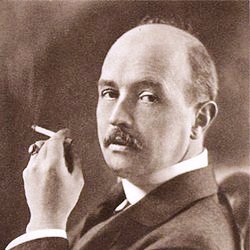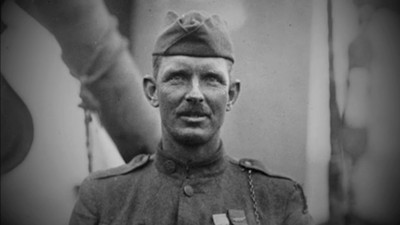#monett plant
Explore tagged Tumblr posts
Text
starting new series
in order to balance my reading i like to track the progress i'm making with old series vs how many new series i'm starting. my loose goal is usually to finish/catch up on at least five and start at least ten new series in a year - which turns out isn't as difficult as it sounds bc we're not even halfway through the year yet and i already hit the latter mark! here's an overview of what i read and my opinions :)
series that were so good i immediately read all the books available:
doctrine of labyrinths by sarah monette (book one: mélusine). okay so this was life-changing. not sarah monette inventing dark aroace romantasy in 2005! they hated her for her slay so much she had to start writing cozy fantasy under a pen name! this story is so weird and unique i honestly have no idea how to pitch it except to say that fans of books like the locked tomb, mdzs and captive prince will very likely enjoy it too. the fact that it's not a depraved booklr cult classic by now is a travesty. but we can still make it happen so if you fall into this particular reader category (and wouldn't be put off by the fact that someone may or may not want to fuck his brother a little bit) please do yourself a favor and read this series! check the trigger warnings first tho
the cemeteries of amalo by katherine addison (book one: the witness for the dead). i liked the goblin emperor, didn't love it, but after binging doctrine of labyrinths in less than a week i sorely needed a cure for my book hangover so i decided to pick up this spinoff series and wouldn't you know it - i binged it too lol. ig february was my monette/addison era. amalo felt like course correction after the goblin emperor and, while it's set in the same world and written in the same tone as that book, many of its aspects reminded me more of doctrine of labyrinths which is probably why i ended up liking it more - and was surprised by that too since i typically don't like this slow meditative writing style in fantasy but ig sarah monette just brings a certain je ne sais quoi to her books (emotional whump). the third book is coming out next march and i'm very excited to see what the saddest gay priest detective will do next👀
the stolen heir duology by holly black. to be completely honest i don't think these books are necessary. ig it was cool to return to elfhame several years post tfota and see some of my favorite ya fantasy characters from outsider pov but i found the main couple quite bland, especially in the second book where they are predictably overshadowed by jude & cardan in every respect. jude & cardan are simply The Power Couple, i love them and i appreciated the opportunity to revisit them in their 20s. madoc, everyone's favorite worst dad, has some nice scenes too but apart from that this installment was neither adventurous nor action-packed nor particularly romantic. it's clear now that holly black plans to continue writing in the elfhame universe and i sincerely hope she will try to shake things up by going full adult and/or changing the genre (i have this galaxybrain idea of a wwdits style mockumentary about madoc's exile in the human world which i'm trying to telepathically plant in holly black's brain as we speak)
evander mills by lev a. c. rosen (book one: lavender house). lavender house was the first book i read this year - i picked it up on a whim, honestly not expecting much, but ended up liking it a lot. in many respects it's a pretty basic closed circle murder mystery but with an all queer cast, whereas the second book has our gay detective investigating blackmail. the fact that the story takes place in the (homophobic) 50s and the queer victims are not protected by the law whatsoever adds an interesting spin to the whole idea of seeking and serving justice. i never thought i'm a serialized detective story type of person but ig if you make it queer enough i'll read anything lol so now i'm eagerly awaiting the next andy mills mystery which will come out in fall.
series i'm maybe going to continue reading later:
aubrey & maturin by patrick o'brian (book one: master and commander). seeing all the old man yaoi on a boat memes on tumblr rapidly propelled this series to the top of my tbr. now i have finally read the first book and,, liked it? lol idk the prose was very good, aubrey & maturin's friendship was sweet and the reading experience was cozy, with funny moments here and there, but overall i wasn't gripped by the plot nor did i particularly connect to the characters. i'm glad i read it but rn i'm not planning to continue this (extremely long) series any time soon. the book did have a delightful nautical atmosphere tho so there's a chance i might return to aubrey & maturin's adventures one day, if the mood strikes
page & sommers by cat sebastian (book one: hither, page). this one i didn't like at all tbh. i think cat sebastian just isn't the author for me and i should quit trying to read her books. however, i am both blessed and plagued by completionism and this series only has two books so i might read the second one this year just to appease my demons lol
series i'm not going to continue:
adam binder by david r. slayton (book one: white trash warlock). someone on tumblr recced this book to me ages ago and i wanted to read it ever since - purely bc of the title tbh😅 something i failed to consider tho is that urban fantasy is probably my least favorite subgenre of fantasy. and this book unfortunately didn't feature any memorable character moments or mind-blowing plot bits that could have broken through my unimpressedness with the urban fantasy setting🤷♀️
rook & rose by m. a. carrick (book one: the mask of mirrors). okay now we're entering the Dislike & Disappoint territory. i got interested in this series bc i heard it being compared to gentleman bastard but the similarities end at the renaissance venice setting and a conperson protagonist. the mask of mirrors completely lacks the rizz and swagger of scott lynch's writing and its characters just don't have the oomph of locke lamora and his team. so that was disappointing. on top of that the book is extremely long and convoluted with a worldbuilding that bothered me a lot and i couldn't put my finger on why until i read the themes section on its wiki page - ah yes, the us politics, again, using a foreign setting as a window dressing, again. listen, ik the us politics are important for the us authors to write about but when i pick up a book inspired by the italian renaissance what i want to get is themes and motifs representative of that time and place, even if we modernize them by (honestly lackluster) queernormativity and gender equality. i was mildly curious about the identity of the rook but now that it's been revealed i see no reason to continue this series.
the masquerade by seth dickinson (book one: the traitor baru cormorant). i intended to finish this book last year and leave it there but it was so unbelievably boring it put me into a reading slump for like two whole weeks and i ended up finishing it in january. i noticed that books about colonialism often try so hard to strike this solemn literary tone and say something profound that characters and plot just get bulldozed over by that dedication to conveying this very serious theme. admittedly, baru isn't as bad as that - i'm just biased bc she was pitched to me as a character in the same category as lymond and tyrion lannister so i was disappointed on that account seeing as it was the only reason i decided to give this book a try. i will say the general concept of the story and the plot twist at the end were indeed good but the overall reading experience was so aggressively meh that they just weren't worth it for me and so when the Big Thing happened i was still underwhelmed.
emily wilde by heather fawcett (book one: emily wilde’s encyclopaedia of faeries). i wrote a long ass goodreads review about why i disliked this book so much but let's see if i can be concise for once (ha, as if). i'm a big fan of olivia atwater's books so based on all the buzz around emily wilde i thought i was picking up a similar faerie story. turns out this was more like an "elevated" cozy fantasy version of ali hazelwood's books featuring howl in leather pants (tweed pants?). where atwater uses faerie tale tropes and fae lore to explore classism, neurodivergence and nuanced romantic and platonic connections, fawcett seems to write from a perspective that is decidedly normative. just like emily wilde, half a soul has a heroine who reads as neurodivergent but the narrative is always firmly on her side, whereas the moral in emily wilde seems to be that she has to smile and socialize more or smth. just like emily wilde, a thousand stitches features a faerie as a love interest but in this case he indeed reads like a whimsical magical being, so similar to humans and yet so different at the same time, whereas mr cheap howl knockoff reads like a quirky human man who is an asshole sometimes and can do magic. atwater's books are fairly popular but emily wilde is the book that has mass appeal and ig i shouldn't really be surprised bc when have the stories that question the status quo ever have been more popular than the ones that reinforce it? so i'm not really surprised but i am bitter. this book left a sour taste in my mouth and made me feel really bad about myself which was something i hadn't reckoned with when i picked up this cozy fantasy. tbh i initially was going to masochistically read the sequel out of morbid curiosity but then i remembered that i can read literally anything else instead lol the hater gods spared me just for once😅
2024 reading updates | goodreads
#book tag#2024 reading updates#might as well actually start blogging about the books i read lol#please ask me what aroace romantasy is😅#so i want to do these recaps partly bc i want to find patterns in what i like and dislike#and so far the pattern in the dislike section seems to be#this was recced to me with xyz comp titles but utterly failed to live up to those comparisons#i wonder what conclusions i can draw from this lol
10 notes
·
View notes
Text
Made this post several months back about Bruce Wayne having to deal with my OC Monette and, found myself writing fic this morning.
Monie is Not Impressed.
~~
“The Martha Wayne Foundation is fine enough, of course, but darling you can afford to buy and sell this city-” Bruce chuckled.
“I’m not that rich,” he said. Monette’s smile sharpened, just a touch, at the interruption.
“This is the third pair of thousand-dollar Bally shoes you’ve been seen in this year, all of them different from last year’s, and not counting the thirteen-hundred dollar loafers you tweeted about on your birthday.” An unreadable expression crossed his face, for only a heartbeat, which she pointedly ignored in favor exchanging her empty champagne flute for a canapé with a bright “thank you, darling!” to the server.
“Well, you keep up to date on the latest,” Bruce laughed, smiling politely now. She chuckled back.
“I do try. But that’s aside from what I was saying-” Interrupt her, really, between his parents and the butler he couldn’t even learn that many manners. “Good on you for keeping your mother’s charity going, and your donations have been very thorough, but you have the money to buy and sell Gotham at your whim and this is the state of it. I mean, Arkham is still standing.”
“It’s a historical landmark,” he said.
“It’s a mad scientist’s storeroom,” she countered. “If nothing else someone with your income could afford to fund an alternate hospital, one that isn’t getting accused of human rights violations every other month. In fact, I think that’d be a grand offshoot of the Martha Wayne Foundation- a hospital or two dedicated to mental health. Then you could buy Arkham and turn it into something useful for the community.” Like a sewage treatment plant, or a clown college. It couldn’t be difficult, it wasn’t like it was doing it’s job if the constant reports of escapes and attempted escapes and ‘recovered’ patients immediately relapsing was anything to go by.
It was part of her homework, before she came out to these events, to check on things like this so she could properly get up Wayne’s ass about them.
He just shook his head.
“The workers at Arkham do their best,” he said. “There’s only so much you can do with the sort’ve people who end up there.”
For a moment, Monette’s smile tightened to something razor sharp as she bit back the urge to punch the man. They were at a formal event, surrounded by people who would view her negatively if she did. Really? Really? ‘Doing their best’. As if this excused rampant corruption and human rights violations. But then, that seemed to be the tour de force of Gotham. She had, over the last few years, been working on the assumption that Bruce also took issue with such things.
Mayhaps she’d been mistaken.
“There’s hospitals all across the country that manage it,” she said, still smiling, still bright, if with a bit more acid than before. “Mostly in areas without dedicated superheroes, actually.” Her teeth flashed in a grin, even as Bruce’s expression tightened minutely. Especially as Bruce’s expression tightened. “Maybe places like Gotham should ask them for advice.”
2 notes
·
View notes
Conversation
U.S. Daily Precipitation Records Tied/Broken 9/3/22
Unincorporated Fairbanks North Star Borough, AK: 0.5" (also 0.5" 1999)
Mt. Ryan summit, Alaska: 0.5" (also 0.5" 1999)
Marshall, Arkansas: 1.62" (previous record 1.42" 1988)
Mountain Home, Arkansas: 2.56" (previous record 2.3" 2008)
Gilroy, California: 0.01" (previous record 0" 2021)
Lancaster, California: 0.15" (previous record 0" 2021)
Unincorporated Las Animas County, Colorado: 0.13" (previous record 0.11" 2016)
Loveland, Colorado: 0.11" (previous record 0.07" 1999)
Unincorporated Otero County, Colorado: 0.13" (previous record 0.06" 2021)
Plant City, Florida: 2.1" (previous record 1.94" 2009)
Unincorporated Polk County, Florida: 1.5" (previous record 1.32" 1952)
Gainesville, Georgia: 1.21" (previous record 0.7" 1983)
Hoolehua Palaau Hawaiian Homeland, Hawaii: 0.52" (previous record 0.25" 1958)
Lost Wood Divide summit, Idaho: 0.7" (previous record 0.2" 2006)
Sawtooth National Forest, Idaho: 0.3" (also 0.3" 2013)
Blackhawk Township, Illinois: 1.7" (previous record 0.89" 1991)
Decatur, Illinois: 2.31" (previous record 1.81" 1966)
Evansville, Indiana: 4.48" (previous record 2.52" 1962)
Burlington, Iowa: 1.4" (previous record 1.35" 1926)
Leesville, Louisiana: 2.2" (previous record 2.02" 2008)
Unincorporated Rapides Parish, Louisiana: 2.2" (previous record 2.05" 2011)
Lick Creek Township, Missouri: 2.73" (previous record 2.7" 1993)
Mansfield, Missouri: 1.88" (previous record 1.65" 1984)
Monett Township, Missouri: 1.55" (previous record 1.01" 2008)
West Plains, Missouri: 3.65" (previous record 3.02" 1988)
Grassy Ridge summit, North Carolina: 1.13" (previous record 1.1" 1996)
Unincorporated Municipio De Trujillo Alto, P.R.: 2.33" (previous record 1.93" 1998)
Sumter National Forest, South Carolina: 4.25" (previous record 1.1" 1970)
Memphis, Tennessee: 1.36" (previous record 0.94" 1988)
Big Bend National Park, Texas: 0.92" (previous record 0.45" 1986)
Del Rio, Texas: 1.77" (previous record 0.91" 2007)
Unincorporated Gillespie County, Texas: 1.74" (previous record 1.13" 1974)
Unincorporated Hill County, Texas: 2.89" (previous record 1.29" 2020)
League City, Texas: 2.76" (previous record 2.46" 2018)
Unincorporated Navarro County, Texas: 1.07" (previous record 0.95" 2020)
Persimmon Gap summit, Texas: 0.73" (previous record 0.63" 1993)
Moses Lake, Washington: 0.1" (previous record 0" 2021)
#Storms#U.S.A.#U.S.#Puerto Rico#1990s#Arkansas#1980s#Colorado#Florida#Georgia#Illinois#1960s#Louisiana#Missouri#North Carolina#South Carolina#1970s#Texas#Idaho#Alaska#1950s#Tennessee#Iowa#1920s#Hawaii#Washington#Indiana#Crazy Things#Awesome
1 note
·
View note
Text
It Seems Like Nothing Changes
Paul Cussen
October 1918

The British Army renew their recruiting campaign in Cork, however, when a British Army regimental band begin to play on a street corner to attract the public two republican pipe bands set up across from them playing rebel tunes (Cork Constitution, October 21).
The second wave of the flu pandemic strikes Ireland from mid-October to December. At the Adelaide hospital in Dublin 497 admissions with flu and 32 deaths are reported in October ‘often within 24 hours of onset’. The almost equally severe third wave of the pandemic will last from mid-February to mid-April 1919.
During the Commons debate in October 1918 on the Irish Land (Provision for Soldiers) Bill, in the course of a lengthy speech, D.D. Sheehan (who had "relinquished his commission on account of ill-health contracted on active service, and is granted the honorary rank of Captain”) says:
... even although it may only benefit 3,000 or 4,000 of those Irish soldiers who have patriotically fought for their country and for the liberties of the world ... I want this measure to become law and to become operative .....

October 1 – Second Lieutenant Martin Joseph Sheehan, observer and gunner in an R.E.8 and son of D.D. Sheehan MP, is killed along with his pilot over Cambrai.
The Desert Mounted Corps capture Damascus

October 3 – Siegfried Sassoon visits his mentor Robbie Ross (Oscar Wilde’s literary executor) for the last time. Sassoon later writes that Ross, in saying goodbye, gave him a "presentiment of final farewell."
Kaiser Wilhelm II of Germany appoints Max von Baden Chancellor of Germany.
King Ferdinand I of Bulgaria abdicates in the wake of the Bulgarian military collapse in WWI. He is succeeded by his son, Boris III.
October 4 – Wilhelm II of Germany forms a new more liberal government to sue for peace.

The T. A. Gillespie Company Shell Loading Plant explosion in New Jersey kills over a hundred people and destroys enough ammunition to supply the Western Front for 6 months.

October 5 – Robert Baldwin Ross dies of heart failure in London at the age of 49.
October 7 – The Polish Regency Council declares Polish independence from the German Empire and demands that Germany cedes the Polish provinces of Poznań, Upper Silesia and Polish Pomerania.
October 8–10 British and Canadian troops take Cambrai from the Germans in the Second Battle of Cambrai.
October 8 – USS Stockton, Rowan, Davis and sloop HMS Camellia, based in Cork, escort convoy HH71 to Brest, France.

In the Forest of Argonne in France, U.S. Corporal Alvin C. York almost single-handedly kills 25 German soldiers and captures 132.

October 9 – Landgrave Prince Frederick Charles of Hesse is elected King of Finland.
October 10 – County Borough of Cork School Attendance Committee Minutes report notes ‘complaints made… by parents… that they cannot get their children to attend school owing to the manner in which they are punished by teachers’

The RMS Leinster mailboat is struck by torpedoes from a German U-boat (UB 123) off Kish Bank Lighthouse, with the loss of at least 501 lives. More Irish die on the Leinster than on the Lusitania or the Titanic in the largest loss of life in the Irish Sea.
October 11 – The 7.1 Mw San Fermín earthquake shakes Puerto Rico killing 76–116 people. A destructive tsunami contributes to the damage and loss of life.
October 12 – The City of Cloquet, Minnesota, and nearby areas are destroyed in a fire, killing 453.
October 13 – Wexford beat Dublin in the Leinster Hurling Final at the Enniscorthy Showgrounds, 2-03 to 1-02.

Jack MacGowran is born.

October 16 – Louis Althusser is born (d. 1990)

October 17 ��� Rita Hayworth is born (d. 1987)
October 18 – The Washington Declaration proclaims the independent Czechoslovak Republic.
October 19 – Private Michael McCarthy from Buttevant dies from wounds received during the Battle of the River Selle, aged 25.
October 21 – Mary Josephine Gene Clark is born in Cork to Mary Josephine Clark (née Dea) of Smith’s Street, Cork (originally from Youghal). Her father, First-Class Gunner’s Mate Eugene Clark from Waterloo, Iowa, had died two weeks previously after being swept overboard in heavy seas.

October 22 – A Curtiss Model H crashes killing one airman, Walford August Anderson from Monett, Missouri. The stone memorial, located close to the top of the Whiddy pontoon, is unveiled by Lieutenant Colonel Seán T. Cosden, Defence Attaché at the American Embassy in June 2014.
October 24 –Battle of Vittorio Veneto opens.
October 25 – Aleppo captured by Prince Feisal's Sheifial Forces.
The steamer Princess Sophia sinks on Vanderbilt Reef near Juneau, Alaska. 353 people die in the greatest maritime disaster in the Pacific Northwest.
October 26 – Units of Desert Mounted Corps charge at Haritan in the last conflict with Ottoman forces in WWI.
October 28 – Czechoslovakia declares its independence from Austria-Hungary.
A new Polish government is declared in Western Galicia (Eastern Europe)

October 29 – The Wilhelmshaven mutiny of the German High Seas Fleet.
October 30 – The Martin Declaration is published, including Slovakia in the formation of the Czecho-Slovak state.
The Armistice of Mudros ends conflicts between the Ottoman Empire and the Allies and grants the Mutawakkilite Kingdom of Yemen independence from the Ottoman Empire.

October 31 – A public meeting is held in the Council Chamber, City Hall concerning the securing of a supply of milk at a cheap rate for the children of the city. Bishop Cohalan tells the meeting they are assembled to continue the scheme inaugurated the previous winter.
The Hungarian government terminates the personal union with Austria, officially dissolving the Austro-Hungarian Empire.

Egon Schiele dies of influenza (b. 1890)
2 notes
·
View notes
Text
other colleagues (to be added as and when):
Monette, Henry -- pain in the ass. underhanded. ruthless. makes a good coffee + tea.
Wadsworth, Sarah -- plant fiend. respectable. intelligent + knowledgeable. friendly. bold.
#🌊 | personalised storybuilding tag.#🌊 | general npc tag.#i'm not giving these people individual tags lmaoooo
1 note
·
View note
Text
CARL’S BLOG: ARKANSAS HILLBILLY
Author’s Note: Good morning everyone. I hope everyone is enjoying ARKANSAS HILLBILLY.
Please fill free to make comments on how you feel. It helps me. Christmas day will be here before we know it.
I wish everyone a happy holiday season and a nice Christmas this year. The Coronavirus has and will continue to dampen our
Spirits, but our faith in God remains strong. Prayers and Hope will prevail. Have a great day! Carl J. Barger
12-7-20, Cotton Picking, Whooping Cough, and Potions, PART 1
Cotton Picking, Whooping Cough,
and Potions
When I was about five years old, Ma made my first burlap
sack for picking cotton and gave it to me. Every school
year after the first six weeks’ grading period, the school administration
dismissed classes for six weeks so that students could
help with the cotton harvest. There were several farmers in
Cleburne County who raised cotton, especially in the Miller and
Shiloh communities. The local cotton gin was owned and operated
by Dick Hunt, who was also the owner of a big mercantile
store in the Lone Pine community.
Since Pa never planted cotton, our big family packed our big
GMC truck with bedding, cooking utensils, and other needed
items and traveled to Monette, Arkansas, in Craighead County
for the annual cotton harvest.
From the time I was five years old until I was seventeen,
we picked cotton for a farmer by the name of Claude Neely
and his father-in-law, Lee Milligan. Each year we stayed in
Mr. Milligan’s old house near the cotton field. The old house
had two bedrooms, a living room, and a kitchen/dining room.
With all our mattresses on the floor, there was hardly room to
tiptoe between them. The house had no toilet and no running
water. We had to get our water from a well and pump outside
the house.
After dark, we boys would go to the pump area with
washcloths, towels, and a bar of soap. We would remove our
shoes and clothes and take sponge baths. Some nights we were
too tired and skipped the sponge baths. That was a big mistake.
That is when sand trickled down from our bodies and made its
presence known in our beds.
Ma cooked our meals on a two-burner butane stove. We had
no oven, so we had to buy sandwich bread to eat. I sure missed
my mother’s homemade biscuits.
Ma and my older sisters washed our clothes in a big
galvanized tub using a scrubbing board and soap to get the
stains out. After washing our clothes, they squeezed out the
excess water with their hands and pinned the wet clothes on a
clothesline supported by two-by-four wooden posts. Depending
on the wind and humidity, it took several hours for the clothes
to dry.
There were two things that I literally hated about picking
cotton at Monette. First, I hated going to bed nightly in a gritty
bed. There was little room between the mattresses, so when we
pulled off our blue jeans, a good deal of sand found its way into
our beds. It was uncomfortable trying to sleep in a bed
with sand.
On Saturdays Imogene, Betty, Loudeen and Ella Mae washed
the sheets. I always looked forward to going to bed on Saturday
nights after Ma had put the clean sheets back on our beds.
The second thing I hated was getting up early. Ma would get
us up before daylight and feed us breakfast. It was important to
start picking cotton as early as we could see the bolls of cotton.
Cotton weighs more when it is wet. The dew on the cotton
didn’t dissipate until the sun came out and dried the dew away.
Since we got paid by the pound, we tried to pick as much cotton
as possible in our first sack. It always weighed the most.
Because of our large family, we made good money during
the six weeks of cotton harvesting. We were paid three to four
cents a pound for every pound we picked. Almost all my older
siblings could pick at least three hundred pounds of cotton a
day. It was not until I was fourteen, though, that I accomplished
picking three hundred pounds. One of my sisters, Loudeen, was
the cotton-picking champion of our family. She could pick up to
four hundred pounds of cotton daily.
Ma insisted her daughters not lift anything heavy, so we
boys got the responsibility of carrying their sacks of cotton to
the weighing station. We would pick the heavy sack up, throw it over
one shoulder, and carry it to the weighing station, sometimes
a long distance away. I now know how hard that was on our
backs. As I am writing this, I am seventy-two years old. To this
day, all my brothers and I have back problems.
The weighing station was a big wagon with large sideboards
reaching about five feet above the main base of the wagon.
It was a real challenge to pull a one-hundred-pound sack of
cotton over the sideboards to empty the cotton into the wagon.
I always had to have assistance from the person on the ground
that weighed the cotton. He would get under the sack on the
ground and push it upward as I pulled. It would take all my
strength, but we would finally succeed in getting the sack over
the sideboards so I could empty the cotton from the sack into
the wagon. Picking cotton by hand was a big and difficult job,
but the hardest part was dumping those hundred-pound sacks of
cotton.
I hated going to the cotton patch more than anything we
did as migrant workers. It was a nasty job. Our hands bled the
first two weeks because of the sharp cotton burs puncturing our
fingers and palms. It normally took two weeks for calluses to
form, thereby preventing further damage to our hands.
0 notes
Photo

Wren awoke in their small canvas tent. She slid her hand over her mouth, yawned breathily, and smacked her lips together twice; she rubbed at her eyes. There, sleeping next to her and sharing the blanket, was Kestrel, face still, mouth closed. Wren placed a hand on his chest and felt his steady heart beat. She rested her head on his shoulder and listened to him, to the birds outside the tent, to the slow, lazy river as it babbled ceaselessly next to their camp. This was good, she thought.
Soon, the early morning sun’s long rays tinged the canvas a pale thistle; the tent began to warm. A shadowy leaf fell to the ground. Wren watched the moving shadow with a contented smile. If only every moment were so idyllic, so peaceable, as this.
Wren wondered about her life – a different life – one spent in the little cottage above Stormwind. Perhaps she would venture down the mountain and teach grammar classes; perhaps Kestrel’s school would be built; perhaps those eight orphans for whom he had envisioned a better life – perhaps, they would be sheltered from poverty, crime, and war. Perhaps the couple would be socialites. She grimaced as her mind played through one imagined dinner party after another, each accompanied by a different dress. Dresses! Wren chuckled. Maybe that was the sacrifice she’d make for gourmet foods, and recherché tea. Or, just perhaps, the two would live in quietude, and raise sheep for milk and meat and skins – where she could carve little hardwood figurines, and he could craft leather goods. She contemplated the fishing near the cottage, and wanted to ask Osprey about it.
Wren reflected upon a life where she could just be ‘Quai’, and he, ‘Brian’; where they were no longer infected with shadow or pursued by the law; if she could have children. The thought of Auntie Monette made her grin. Maybe Juniper could teach their children about plants, while Justine… Justine could retire, and reclaim her birth name. Wren suspected Andrew and Malor’incan would remain the same. And what of Gwen and her cat? Miss DuCass and her family’s legacy? Kyara and her betrothed?
Kestrel began to wake; it was a slow process. Wren could feel his heart tick faster, and watched as his eyelids fluttered open. Kestrel smacked his lips a few times, turned away from Wren, and yawned. Wren appreciated their symmetry. Kestrel shifted and looked toward Wren lovingly; she was nestled between his arm and chest, a goofy smile splashed across her lips. Kestrel grinned.
Wren squeezed him. “This is the most you will ever get,” she teased. She knew her imagined life was pure fantasy, yet she closed her eyes and let the sun’s warmth comfort her anyway. This was good enough.
(( Mentioned: @quai-mason, @justinegrotius, @monettemason, @juniper-rose-blower, @andrew-mason, @malorincan, @gwen-oconnell, @missducass, @killerkyara ))
13 notes
·
View notes
Text
So on Sunday my brain decided to throw Gwen/Mike/Kevin/Argit at me for some reason and today decided to continue with it, so.... Have a couple thousand word double feature.
~~
The house was smaller than the one Mike had been living in when they met, but just as if not more grand. Enough so that even Gwendolyn, nonetheless Kevin and Argit, had to stop as soon as they were out of the car to stare at its white stone walls, intricately paned windows, and the sheer amount of well-tended greenery and flowers. For all they had been told this wasn’t the normal place for family get-togethers due to being ‘not fit for hosting’, they simply couldn’t see it. It was still huge and gorgeous. No wonder Mike had been rolling his eyes when he said it. They couldn’t have been stood there gawking long before the front door opened to reveal a small woman dressed to impress.
“Mikey!”
“Monie!” And immediately Michael Morningstar- who in the three years since he’d gotten clean and the two he’d been a part of their little quartet had not engaged in displays of affection more grand than jewelry- bolted across the lawn, scooped the similarly excited woman up into a spin, and hugged her fiercely as soon as her feet had touched the ground.
“Remind me to get him to spin me at least once during this relationship,” Kevin grumbled as he and Gwendolyn rounded the car. “I don’t care if it happened right before he drops me into a volcano, as long as it happens.”
“Jealous, much?”
“Don’t be a hypocrite, Red. And stop scowling, she’s his cousin for fuck’s sake.” Something that was easier to tell as they came closer. There were plenty of differences- golden toned versus pink, tall versus short, blond versus grey, blue eyed versus green- but a few key features stood out. Their eyes were the same shape, they were of similar narrow build, and they carried themselves with the same proud bearing. The woman- Monie- stepped back as they approached, flashing them a toothy grin as Mike turned to present them.
“And these are my…” He goes quiet, mouth twisting and hand curling shut. They’ve never really worked out terms. Kevin and Gwendolyn were boyfriend and girlfriend, Kevin and Argit were partners, but Gwendolyn and Argit? Any of them and Mike?
“Yours?” his cousin offered in fond amusement. Mike nodded.
“Mine. Kevin Levin, Argit Levin, and Gwendolyn Tennyson.”
“Monette Morningstar,” she introduced herself, stepping around Mike and towards them. Gwendolyn stepped forward to offer a hand to shake, only to be wrapped in the same fierce hug Mike had gotten, and for Monette to quickly do the same to Kevin and Argit. “It’s a pleasure and an honor to have you here.”
“It’s a pleasure to be here,” Gwendolyn answered, still reeling a bit from getting a warmer welcome than she got from a fair chunk of her own family.
“We were beginning to think Sparkles was lying about having relatives,” Argit continued, “to make himself look better.” Kevin and Argit only had family in the Amalgam Kids and Cooper, who were always around, and they all were practically tripping over Tennysons, but Mike was the only member of his family he interacted with in their area, and the three times he’d gone to family events since they’d gotten together he’d insisted on going alone.
“Not surprised,” Monette said with a nod, “most of the others already hate you.” Gwendolyn snorted derisively while Kevin groaned beside her. They’d been warned the entire drive up, but still. “He doesn’t shut up about you, you know. Well, he hasn’t shut up about you since he was twelve-”
“Monie!” The woman kept her same easy, welcoming smile as he and Gwendolyn both went red around the edges.
“-but he’s even worse now. Shame, it would’ve been so fun to see him just drop you all on the family at once.” Stepping forward, Mike scowled at her.
“I am not putting them through that,” he said with finality as Argit snickered.
“Of course not,” she replied, waving off the very idea. “It’ll still be the funnest holiday since you ran off.” With another flash of perfect teeth she gestured them towards the house, falling in behind the little group with light steps. “Now come on, lunch is all ready and you kids must be starving-”
~~~~~
~~~~~
They had claim over the master bedroom whether they wanted it or not, their hostess more willing to eat her own legs than to risk them being crowded in one of the smaller beds. Not that it was much of a concern. Kevin had always been a tactile man, Argit had been born for piles of people, and between them it wasn’t at all difficult to cram the four of them into a space smaller than they had available.
It just meant they got to stretch out a bit, was all.
Gwendolyn was taking up as much space as possible, her legs hanging off the side of the bed and her head on Kevin’s chest. Meanwhile Mike had pressed the whole of himself against Kevin’s other side, stretched over him just enough so he could hold a tablet in place for he and Gwendolyn to read the book on it together. Argit didn’t even bother with distractions, content to doze splayed out across the boys’ legs, tail wrapped around Gwendolyn’s wrist. This was the norm for them, and Kevin had long accepted his destiny to be a mattress, generally working on a project or a book over the others’ heads until one of them groggily forced him to set it aside and go to sleep.
He’d already set it aside himself tonight.
“So,” he said into the quiet, fighting back a smile, “are we just not going to mention the whole ‘mine’ thing?”
“Yes.” Ears twitching, Argit snickered.
“Good. I’d much rather hear about how you talk about us all the time.” Mike groaned, shifting forward to bury his face in long red hair.
“Gwendolyn, lovely, perfect Gwendolyn-”
“Sorry, it’d work with Kevin but you know I can’t shut Argit up.” She shuffled away, just enough that she could turn her head and crane up to plant a kiss on his cheek. “It was nice to hear though. You’re harder to get an ‘I love you’ out of than Argit.”
“Because I don’t love you, Red,” Argit cut in cheekily, as Mike heaved something between a huff and a groan, “I tolerate you for the men’s sakes.”
“Uh-huh,” she replied, fidgeting with his tail, “you keep saying that.” Beneath them, Kevin chuckled as he reached out to tug gently at a lock of blond hair.
“We love you too, Sparkles.” In response Mike just pulled away with roll of his eyes and a huff, as if he wasn’t going red for probably the fourth time just since they’d pulled into the drive.
“I hate you all,” he answered with far less bite than he likely intended, “and one day I’m going to eat you out of pure spite.”
~~~~~
~~~~~
The first day of their holiday was definitely the best one. A nice, if simpler than expected, lunch with Monette. Meeting Mike’s Uncle Hector (Zombozo. Mike’s uncle was Zombozo. Zombozo, who wanted to start over fresh because apparently his line in the sand was risking making things harder on his nephew.) They’d had fresh pasta and baked apples at dinner, spent the evening exchanging stories, watching movies, and looking at pictures of Mike from birth to his teen years. Pictures Mike assured them, with a pained expression, had not been gathered for this event. His cousin and uncle were just exactly the types to have them on hand.
Monette’s parents had shown up on the second day and things had started getting tense. They loved their daughter, that was evident from the first moment they’d arrived, but otherwise… Nobody could really blame them for being openly unimpressed by Hector- excepting the younger Morningstars, apparently- but they treated Mike the same way some of Gwendolyn’s relatives treated her. Loving, but with the sharp edge of impossible expectations. The rest received polite distance, like they were some fling Mike’d drug along rather than people he’d been with several years. Still, they managed a nice, if awkward, dinner, and sat up late listening to embarrassing stories of Monette and Hector’s childhoods. It wasn’t fun, but there were fresh desserts and the evening wasn’t any more painful than larger Tennyson gatherings.
The third day though, that was Thanksgiving proper, and it brought the rest of the family. The middle cousin, Teddy, and his fiancé. His parents. Great-aunt Winnie. And suddenly, like a curtain was flung open, you could see how Darkstar happened. You could even see how Zombozo started.
These people did not like mutants.
They did not like aliens.
They did not like bastard children.
It hurt to know that the two had been outnumbered for so long.
Dinner was beyond awkward. Passive-aggressive comments flew to a degree even Argit hadn’t seen before, and he made it his job to antagonize Gwendolyn’s mother’s family whenever they met. Both sides threw jabs back and forth- about people’s jobs, people’s diets (never before had Kevin been seen passive-aggressively giving someone food but the moment Winnie had said something about Mike’s appetite it had been war), people’s lifestyles, people’s taste in clothing. Nothing, it appeared, was off limits, with the exception of a single “while you’re around” comment batted at Gwendolyn that’d had Mike tensing on the other side of the table and Monette putting her foot down as hostess. What sort’ve jab it had been was unknown to the non-Morningstars in the room, but it took a good forty seconds for people to begin talking again after the snapped reprimand.
By the end of dinner nobody was in a good mood. There was a steak knife lodged to the handle in the far wall of the dining room, from where Kevin had lost his temper and flung it at Teddy’s head (in his defense, he had warned the table about making any more comments about his partners, and Monette treated it no differently than if he’d had the misfortune to drop it on the floor), Argit was muttering about “no wonder you didn’t bring out the good cutlery for these people”, Mike, Gwendolyn, and Hector evacuated the room as soon as it was polite to do so for their own mental health, and Monette had a smile on her face that was sharp enough to cut glass. It was amazing nobody (namely Winnie) had been thrown out a window and most likely that was only because they were really nice, presumably expensive, windows.
The rest of the evening didn’t even have the decency to be entertaining. Just a slog they got through with tight-lipped politeness and a healthy dose of passive-aggression before heading to bed- ignoring the pointed comments about ‘making’ Monette give up her room as they went. Mental and emotional exhaustion had them sleeping soundly, waking at first light. They stayed long enough for coffee, breakfast, and Mike to hug his proper family members goodbye before heading out before anyone could wake up enough to start in again.
They were an hour down the highway when Kevin pulled over.
“Okay, I’m saying it now,” he announced in a tone that brooked no argument, “Monie can visit anytime, your uncle is a maybe, but I am never sitting at a table with the rest of those fuckers again in my life.” The others nodded at Mike in agreement, though Gwendolyn at least had the decency to try to look sorry.
“You know,” he replied, honestly looking like a weight had been taken off his shoulders- and with how Gwendolyn could be about her own family it probably had been- “I think I can live with that.”
#fanfic#yes i changed zombozo's name because i hate the canon one#are shithole relatives the *entire* reason two members of this family started eating people?#no#did they help in the act of *not* having them start eating people?#fuck no
4 notes
·
View notes
Photo

Joymaking plant that is 10+years old. ❤️#happymaking #2starart #kellykat (at Monett, Missouri) https://www.instagram.com/p/Bsr0ga-DnBD/?utm_source=ig_tumblr_share&igshid=plh1cizsy7c4
0 notes
Text
Welcome to the thing whatever it is
I got tagged by @ibenholt
name: Dani
nicknames: At Starbucks, I reliably get either ‘Annie’ or ‘Denny’ written on my cup, so maybe that.
zodiac sign: Cancer
height: 5′2 (157cm) I am a wee thing
orientation: somewhere along the bi/pan clusterfuck
nationality: Canadian
favourite fruit: Blackberries
favourite season: Spring/Autumn--the ones you don’t get in my part of Canada
favourite book: I have way too many. It’s easier to list favourite authors, so here are a few: Ellen Kushner, Proust, Sartre, Dostoyevsky Catherynne M. Valente, N.K. Jemisin, Anne Leckie, Sarah Monette/Katherine Addison, and that’s just fiction.
favourite flower: I dunno, I’m not really that into plants. I love the smell of clovers, though.
favourite scent: Ocean
favourite colour: To wear? To see other people wear? To use in art? You gotta be more specific :/
favourite animal: Crows!
coffee, tea, or hot cocoa: All three, but coffee is my preference
average sleep hours: Either 2-4 hour naps, or I pass out for 12 hours straight
cat or dog person: Both!
favourite fictional character: Entirely too many
number of blankets you sleep with: One. Despite living in a frozen wasteland, my apartment has a great heating system that I don’t have to pay for.
dream trip: Somewhere warm. I wanna see a lot of places, but I really miss living in Victoria, so the trips I most look forward to involve going back there.
blog created: This one about 3 years ago, but I’ve had my main for around 5 or 6?
I’m bad at tagging people, but @emblazonet, @largebisexual, @amatara?
2 notes
·
View notes
Text
Whole Foods is selling home decor now
Walk into the new Whole Foods in Bridgewater, New Jersey, and rather than bumping into that omnipresent pile of organic avocados, you’ll discover succulents, orchids, handmade plates, scented candles, and copper bowls.
It’s part of a new mini store within Whole Foods dubbed Plant & Plate. It’s got plants. It’s got plates. And it’s got pretty much any other little piece of Instagram-ready home decor item you could imagine.

[Photo: Whole Foods Market]
“Three years ago, we really started being a lot more proactive in the housewares category. Not just OXO goods [the award-winning kitchen wares], but to really go outside the box and find items that we think our customers would enjoy,” says Genevieve Monette, Whole Body coordinator (the store’s personal care segment) at Whole Foods.
While Whole Foods had experimented with limited items like Hedley & Bennet aprons in the past, the Bridgewater store offered a unique architectural enclave–an opportunity to put a small store outside of Whole Foods itself–that inspired the company to attempt a more realized housewares spin-off in Plant & Plate. The space has that rustic chic, Pinteresty vibe–an inoffensive interior design catchall.
Much like Whole Foods made a name for itself by selling local produce at scale, Plant & Plate has relationships with local vendors, like New Jersey’s Keiko Inouye pottery to sell artisan ramen bowls. Amazon’s global retail influence this is not–Monette assures me. Plant & Plate lives entirely under the Whole Foods umbrella.

[Photo: Whole Foods Market]
So why housewares? “It’s a category that’s been growing for us and doing well,” says Monette, echoing the sentiments of much of the grocery industry. “And it’s an impulse buy for a customer.” Groceries are a notoriously low-margin product, which also requires retailers to float a lot of inventory that can spoil before it’s sold. Housewares, on the other hand, have some of the biggest markups in retail–as high as 60%. If a turnip and a candle take up the same footprint, you can almost bet that Whole Foods can make more money off the candle. “Well, it’s not perishable!” Monette says, when I ask about the margins on the housewares category. “It doesn’t go bad, so it’s been a good investment for us.”
Whole Foods declined to comment on specific sales, but says that Plant & Plate has been quite popular. In turn, the company will open at least one more location before the end of year, and they imagine that it could scale regionally, or even nationwide if things continue to go well–assumably with a continued commitment to local vendors. Though not every Whole Foods has a dedicated space for a stand-alone store within the store, so the company would have to figure out how to incorporate housewares in new ways.
“We’re not taking apples or bananas away for it,” Monette says. “This [first store] is a showcase feature. We’ll be able to reproduce it in other stores as well, but also layer in those selections in smaller format stores as well. It doesn’t need a big room.”
Whole Foods is selling home decor now published first on https://petrotekb.tumblr.com/
0 notes
Text
Monett Council recognizes local journalist
Finally, commissioners approved a bid from Guarantee Roofing to replace the roof on the wastewater treatment plant filter building and make repairs ...
0 notes
Text
Monett Council recognizes local journalist
Finally, commissioners approved a bid from Guarantee Roofing to replace the roof on the wastewater treatment plant filter building and make repairs ...
0 notes
Text
http://freecreditscore.home.blog/west-plant-city-strawberry-farms-plant-city-florida-credit-repair-888-630-5917/
http://freecreditscore.home.blog/west-plant-city-strawberry-farms-plant-city-florida-credit-repair-888-630-5917/ https://youtu.be/MG3u9Y2qaec https://colombialawyer.blogspot.com/p/abeline-road-charlotte-north-carolina.html https://missouricreditcounseling.blogspot.com/p/altura-street-denver-colorado-credit.html https://caldasantioquiacolombia.blogspot.com/p/delaware-consumer-credit-counseling.html https://minnesota55104.blogspot.com/p/cypress-park-los-angeles-ca-consumer.html https://usa-credit-counseling.blogspot.com/p/mesa-colorado-credit-repair-888-630-5917.html https://districtcolumbiawashington.blogspot.com/p/berkshire-way-san-francisco-ca-credit.html https://creditrepairunitedstates.blogspot.com/p/mondamin-iowa-credit-repair-888-630-5917.html https://consumerdebtcounseling158985170.wordpress.com/monette-arkansas-consumer-credit-counseling-service-888-551-1270/ https://unitedstatesconsumercreditcounseling.blogspot.com/p/modena-new-york-consumer-credit.html http://www.yellowbot.com/consumer-credit-counseling-service-1-888-551-1270-sparks-nv.html https://postalmailbox.wordpress.com/kelliher-minnesota-virtual-mailbox-service/ https://flowersfresh.wordpress.com/knox-new-york-flowers-fresh-same-day-delivery/ http://consumerreport.home.blog/evans-pines-raleigh-north-carolina-credit-repair-888-630-5917/ http://consumerreport.home.blog/lakehurst-lakeland-florida-credit-repair-888-630-5917/ http://fixbadcredit.home.blog/mt-cresti-dr-san-diego-california-credit-repair-888-630-5917/
https://www.youtube.com/channel/UCVdxH721B2g5Ist6mA8nIkQ/videos
youtube
https://www.youtube.com/playlist?list=PL-B7IfFWtv9KlRXXtR_qSdz4M4GqGl-Of http://wwa.you2repeat.com/watch/?v=MG3u9Y2qaec https://cse.google.com/cse?cx=003555290596869000553:l2dgwbwrqcs
https://cse.google.com/cse?cx=017718293001111184089:n6gblylpg14
from https://www.youtube.com/playlist?list=PL5LHhBfbi60zF7-mQii1n48UWZWFgsM2t December 30, 2019 at 09:22AM
0 notes
Text
Some more for the First Pass AU. This time a segment of a proper meeting.
~~
“Dar~lings, quick reminder that I spend most of my patience on the actual children and don’t have much left to spare~”
Quickly everyone quieted down, the loudest yellers seeming to melt into their seats. Nobody knew what Monett would do if she finally snapped under the stress, but she’d never been afraid to punch somebody and had endeared herself to the whers. Not that that was turning out to be difficult, mostly requiring things like being respectful and kind. If you couldn’t manage that, well, nobody wanted you in the settlement anyway.
“Much better, thank you, loves. Now, in a calm and orderly manner-” Wate was the first to return to his feet, and this time the rest of those at the meeting kept quiet and listened.
“Look, I get it, I’m a cat person too, but right now we have to be focusing on animals we need and we just don’t need them. Firelizards take care of pests just as well without causing ecological damage-” A murmuring of ‘why did we even bring cats’ came from some of the crowd, silenced by a wherrish rumble. “Between the firelizards and the dogs a lot of our working animal needs should be filled. If we want them as companion animals well, we can always import them once we’re better established.”
“What about those big cats Ned’s dad made,” Cengiz asked, standing, “can we maybe do something with them?”
“Those things were vicious,” Ned answered from the back, “the mentasynth fucked with their heads.”
“But could we breed that out? They could be useful for day hunting, maybe as companions too, scratch that cat-lover itch.” The hall went quiet as it became clear that none of them really knew enough about mentasynth to know for sure.
“I’ll ask Windblossom about it before the next meeting,” Monett finally said, jotting it down on one of her hundred pieces of paper. There was a mass nod among the others. This was acceptable.
“There’s a question,” Heber called, “have you got what we’re doing with all those damn sheep figured out?”
“I’ve talked to Sorka and Sean,” Monett replied, “dragons ferrying people and goods are allowed free range on the sheep. Might not take out all of them, but it should cut the numbers enough for us to manage the rest.”
“Some of us would prefer they not take them all out, really.” Triesa rose as the other surrendered the floor. She fidgeted slightly. “We were planning to bring this up at the next meeting, but the rest of the miners and I, we want to cut off from Fort ahead of schedule and dedicate our time wholly to the settlement.” Well, they certainly got everyone’s attention.
“Are you sure,” Monett asked, face screwing up in concern. A lot of the crowd mirrored the look. There was a reason they were all splitting their time, mostly to do with the security that came with Fort for the time being. They had a secure base of operations from which to work, and they intended to utilize it fully. Sonia joined Triesa.
“The work will go faster if we just say fuck it and dive in,” she said. “Being able to actually do a full day’s work every day is going to make a massive difference in how long it is until we can actually get out of this crowded shithole.”
“Plus!” Enthanda jumped up as she spoke- “We’re pretty sure there’s more to the caves! We’ll have to knock through some walls, but we can expand our usable space!” Monett chewed her lip, but Vasan joined the fray before she got the chance to speak.
“Our first large-scale greenhouse just needs final construction, and if they’re going to be working full time then that should be possible relatively quickly?” He looked to the women, who nodded.
“We can focus on finishing that first set of pillars first, if you need.”
“Fantastic! If we put some of the local, fast-growing plants in there we could be getting harvests within a month of completion, if not sooner! Plus fish harvests for added protein!”
“We’ve been making good time with the barns, could have them all finished within the month if we go full bore!”
“Once they’re done then we can start working on gathering up those feral goats, dogs, and fowl, maybe start bringing the llamas down if we can get the fencing built up.”
“We’ll still need some extra hands for that, but if you’re not afraid to put in some elbow grease-”
“If we were, would we even be here?”
“You guys’ll need food when you’re starting out though, will we be able to get enough from Fort down to you?”
“I don’t see why not, Monett’s managed to get us everything else-”
Said young woman just stared as the meeting devolved once more into organized chaos. Thankfully this was at least chaos with a purpose and not another argument about what was worth bringing along. At least twenty seemed keen to dive headfirst into their work, with more happy to follow after. And everyone seemed enthused by the idea of the schedule being brought forward, more work being done, the promise of getting out of these crowded caves and from under the thumb of the previous generation.
Well, most everyone. Several people, Mari included, looked like there were some speakers they wanted to lock in a broom closet for their own wellbeing. Mari in particular looked shocked that she was thinking it.
“Quiet,” Monett eventually called, “you’ve all been heard!” She looked around as everyone stayed standing, waiting for her opinion. “Call me overprotective, but I don’t like the idea of you all being so far away for so long. But, you’re right about needing to speed up our work, and I trust you all to know what you need and what you’re doing. So, the group representatives and I will meet up later this week to determine a schedule for getting people moved out there full time. Is this agreeable?”
The representatives of the various fields called their affirmative- Mari a little hesitantly, but she was still watching Vasan so nobody took it too seriously.
“Alright then.” Monett didn’t look too enthused either, but the brush of her wher’s nose across her hand seemed to calm her. “Now, if we could move onto the next item on the schedule- What the Fuck Do We Call This Place: Round Four. I believe Kayphas had a suggestion for something referencing the llamas…”
4 notes
·
View notes
Text
Farmer vs. farmer
The fight over the herbicide dicamba has cost one man his life and turned neighbor against neighbor in East Arkansas.
At the peak of summer in the little town of Monette in Craighead County, the soybeans and cotton in surrounding fields a jealous green, the pear tree that stands 20 feet from the grave of Mike Wallace looks like it has been blowtorched, every leaf blighted, curled and black at the edges. It's the ugly residue of drifting dicamba, the herbicide for which Wallace literally gave his life.
According to investigators, on Oct. 27, 2016, Wallace, who farmed 5,000 acres of corn, soybeans and cotton near the Arkansas/Missouri border, arranged by phone to meet a farmhand named Allan Curtis Jones, 26, of Arbyrd, Mo., on West County Road 38 north of the Mississippi County town of Leachville to discuss Wallace's suspicions that the farm where Jones worked was the source of drifting dicamba that had damaged some of Wallace's crops. Wallace, who had been vocal in his opposition to the herbicide, had been quoted in an August 2016 story in The Wall Street Journal, telling the newspaper that at least 40 percent of his soybean crop had been damaged by drifting dicamba since June. He'd filed complaints twice with the Arkansas State Plant Board, the state agency that oversees claims of crop damage, about damage from drifting dicamba and had encouraged other farmers to report their damage as well.
When Wallace and Jones met outside of Leachville, Jones brought along his cousin and a gun. According to statements issued by Mississippi County Sheriff Dale Cook at the time of the shooting, Jones told investigators that an argument had ensued. In the midst of it, Wallace, who was not carrying a weapon, grabbed Jones by the arm. At that point, investigators say, Jones pulled away, pulled his pistol, and fired into Wallace's body until the magazine was empty. Wallace, a father of two who'd farmed in Mississippi County since he was a boy, was hit at least four times, and died in the dust on the south shoulder of the county road, with Jones' cousin using his shirt in a futile attempt to stop the bleeding. Jones soon was arrested on a charge of first-degree murder, and later released on $150,000 bond.
Whether the shooting was self-defense or homicide will be up to a jury. Jones is scheduled to go to trial Sept. 11. A spokesman for the Mississippi County Sheriff's Office referred all questions about Wallace's murder to the prosecutor for Mississippi County. The prosecutor handling the case did not return a call seeking comment at press time. Calls to the Blytheville defense attorney representing Jones also went unreturned at press time.
However the case against Jones turns out, Wallace's family has been working since his death to see justice done in another way: by trying to get the use of dicamba banned statewide. A 120-day ban was put in place in early July, the fine for illegal spraying of the herbicide increased 25-fold on Aug. 1, and a task force was established to look for solutions.
But a permanent ban on dicamba would run afoul of the needs of farmers, who are facing a shrinking pool of options in the fight against herbicide-resistant weeds, and of corporate investment in genetically modified, dicamba-tolerant crop technology that is easily worth billions. It's a quest that has put Wallace's family at odds with many of their neighbors and, in some ways, even their own best interests as farmers. But they say it is a fight Mike Wallace would make if he were alive.
On the wind
Developed in 1958 by the German-based chemical company BASF and first used on corn crops in the mid-1960s, dicamba is a plant-hormone-mimicking herbicide that's deadly to a host of weeds and other plants, including many common vegetable crops and species of ornamental flowers and trees, like the Bradford pear that stands near Wallace's grave. While it works like gangbusters against pigweed, which has been a bane of row crop agriculture long before the plant began developing a stubborn genetic resistance to glyphosate-based herbicides like Roundup, cotton and soybean farmers in East Arkansas didn't use it because dicamba is highly lethal to those crops, which have long been the lifeblood of the area. Even a light dose of dicamba on those crops can cause curled leaves, stunted plants and a reduction in yield. A medium-to- heavy misting can kill them outright. That, combined with dicamba being prone to drift if applied improperly and its "volatility" — the tendency to change back to a vapor, lift off of crops and float away to neighboring fields under the right atmospheric conditions — would have made the idea of Arkansas farmers spraying large amounts of dicamba in high summer unthinkable 10 years ago, not to mention illegal. Until this year, spraying dicamba beyond April 15, after vulnerable crops had emerged from the soil, was against the law in Arkansas, with violations carrying up to a $1,000 fine. When it was used, dicamba was mostly employed as a "burn down" herbicide to clear an agricultural slate in preparation for planting, before the plants it might harm had sprouted or leafed out.
But that was then. This is now.
In 2015, the Missouri-based agricultural giant Monsanto released its Xtend brand cottonseed. A year later it put out Xtend soybeans. Both are genetically modified to be tolerant of dicamba. Potentially worth billions, the GMO technology promised to be a new weapon in farmers' ongoing fight against several stubborn weed varieties, including pigweed, resulting in higher yields and incomes. To farmers stretched thin, it must have sounded like a godsend.
The new dicamba-tolerant seeds hit the market quickly, and more cotton and soybean farmers began to plant them. But they could not yet use a legal dicamba-based herbicide on their crops, because one was not available. BASF's Engenia, advertised as being less likely to drift off target, was not approved for use in the state until fall 2016, and another low-volatility dicamba formulation, Monsanto's Xtendimax with Vapor Grip, is still not approved for use in Arkansas.
Early adopters who had purchased dicamba-tolerant seed with the expectation they'd soon be able to spray their fields with reformulated dicamba and watch weeds melt away were disappointed with the progress of getting the lower volatility formulas approved. Whether out of greed, historically tight financial margins or desperation at out-of-control weeds, some farmers became outlaws in 2015 and 2016, spraying older, more drift- and volatility-prone formulas of dicamba on their dicamba-tolerant crops, knowing that even if they got caught, the $1,000 fine amounted to a speeding ticket when compared to the increased profits they stood to reap. In the same August 2016 Wall Street Journal article that featured Wallace speaking out about dicamba damage, an assistant director of enforcement with the Arkansas State Plant Board was quoted as saying she'd been openly told by farmers spraying dicamba in violation of the law: "We'll write you a check." If a farmer has 5,000 acres or more under cultivation, all planted with dicamba-tolerant seed, it's not hard to divide by $1,000 and do the financial math.
With some farmers planting dicamba-tolerant crops in proximity to their neighbors' dicamba-susceptible crops and then spraying the older formulations of dicamba, the result in recent years has been like dropping a bomb on East Arkansas agriculture. According to a report released July 25 by a scientist at the University of Missouri, 17 states have received reports of dicamba-related crop damage since the dicamba-tolerant seeds were introduced, with an estimated 2.5 million acres affected. Arkansas was the hardest hit by far, according to the report, with an estimated 850,000 acres of crops in the state damaged. As of early August, the State Plant Board had received over 840 complaints of suspected dicamba-related issues. Gardens and landscaping, some of it miles away from the nearest dicamba-tolerant fields, were scorched and stunted. In a moment that might be funny if it wasn't so indicative of the chaos that's been sown in East Arkansas, the damage this year included 100 acres of soybeans unexpectedly whacked by drifting dicamba at the University of Arkansas's Northeast Research and Extension Center in Mississippi County. A June press release on the damage noted ironically that the damaged soybean plots, which had to be plowed under and replanted, were to be used in research on dicamba drift and volatility. In another irony that might be shocking if it weren't so sad, members of Mike Wallace's family, who have every reason in the world to hate dicamba and what the controversial herbicide has done to relationships in the close-knit farming communities of Northeast Arkansas, planted a sizable part of their acreage this year in dicamba-tolerant crops, solely in self-defense. Tales of defensive planting of dicamba-tolerant seeds have become common, with a kind of forced monopoly-by-attrition taking hold. According to Monsanto, 18 million acres of dicamba-tolerant soybeans were planted in the U.S. this year, including 1.5 million acres in Arkansas — about half the total estimated soybean crop in the state.
Having approved the use of BASF's Engenia in the fall of 2016 over the objections of the Wallace family, the State Plant Board reversed itself on June 23 and voted to recommend a temporary ban on the "in-crop" use of dicamba-based herbicides, a decision that soon received the approval of Governor Hutchinson. A statement released by Monsanto after the Plant Board's vote said the board didn't allow farmers who had already planted dicamba-tolerant seeds to describe how a ban would affect their operations. "Instead," the statement read, "the Board based its decision on off-target movement claims that are still being investigated and have not been substantiated. ... Arkansas farmers should not be forced to continue to operate at a disadvantage to farmers in other states where bans like the board's current proposed action do not exist."
The issue was referred to a joint meeting of the state House and Senate committees on agriculture, economic development and forestry on July 7. By the time the joint committee meeting started at 9 a.m. that day, the room's large, curved gallery was packed, legislators in suits shoulder to shoulder with farmers in plaid shirts and mesh trucker caps who'd driven through the dawn from East Arkansas to be there. The public comment period was crowded and divided: farmers talking about their extensive dicamba-related crop damage vs. farmers talking about the need for the new technology to help solve their herbicide-resistant weed problems. A representative from a small poultry producer told the committee that his niche business model of selling non-GMO chicken was being threatened by damage to the soybeans his business grows for feed. Weed scientist Dr. Ford Baldwin, who called dicamba the biggest train wreck to ever hit agriculture, told the assembled legislators that the day before the meeting, a farmer in that very room had been involved in a fistfight with another farmer over crop damage. He didn't say whether the farmer in question was for or against the ban.
As it has been at every state-level meeting on dicamba that's been held since October 2016, Wallace's family was there, pushing for a ban. Kerin Hawkins, Wallace's sister, addressed the committee. The month after her brother's death, she and other members of her family had pleaded with the Plant Board to ban dicamba, but BASF's lower-volatility formulation Engenia had been approved with restrictions, including a quarter-mile buffer zone between dicamba spraying and non-dicamba-tolerant crops. Hawkins appeared again in July to ask the joint committee to support the ban. She said that in addition to damage to her family's peanut crops, their 10-acre garden patch inside the city of Leachville, which she said is over a quarter mile from any dicamba spraying, had also been damaged by drift.
After the joint committee voted to recommend the ban, an eight-member subcommittee of the Arkansas Legislative Council officially took no action on the plan, which allowed the 120-day ban on in-crop dicamba use to go into effect on July 11. A $25,000 fine for illegal spraying of the herbicide went into effect last week.
An act of man
State Rep. Joe Jett, a Republican who lives at Success in far Northeast Arkansas, is a retired farmer and looks the part. A supporter of the temporary ban, Jett attended the July 7 meeting and invited Baldwin to speak. Jett said heavy rains in Northeast Arkansas this spring helped keep dicamba damage from being worse this year, simply because farmers couldn't get into the waterlogged fields to spray. "Had it not been for that," Jett said, "I think the atmosphere would have really loaded up with dicamba and you would have seen a lot more widespread damage than what we saw as it was."
Jett said he is in favor of advanced technology to help farmers, including genetically modified seeds, but wouldn't use dicamba himself "in good, clear conscience" given the damage he's seen in Northeast Arkansas. "Knowing that we're going to go out here and hurting people and putting ourselves in front of our neighbors? I can't get my head wrapped around that," he said. "Obviously you're always going to have some folks out there who don't care what's right and who are going to take care of themselves. But I think a lot of it is that the margins are just so tight [in farming], and farmers need every break they can get. They're willing to look the other way and be more worried about themselves surviving than they are about their neighbors surviving. I think that's a lot of it."
Asked whether members of the legislature have discussed a way to financially assist farmers in the state hit by dicamba-related crop loss, Jett said the state is on a tight budget and will be unlikely to help. "I don't know how you could ever get into that," he said. "Farmers have insurance, but [the damage] can't be manmade. It has to be an act of God. To answer your question: No, I think that's probably beyond the state. We don't have the means to help in that regard." Federal crop insurance only covers losses due to drought, flood or natural disasters. The only remedy for those farmers whose incomes were damaged by dicamba may be to sue, and some are doing that. There are at least two civil suits against Monsanto and BASF over dicamba use in Arkansas, one representing farmers who planted non-Xtend crops and suffered losses due to dicamba drift, and another by farmers who planted Xtend seeds expecting to be able to use the lower-volatility formulations of dicamba but can't because of the ban. Both lawsuits are seeking class-action status.
Terry Fuller, a member of the State Plant Board who runs Fuller Seed and Supply in Poplar Grove in Phillips County and farms 3,000 acres near the Indian Bay community, spoke in favor of the ban at the July 7 meeting. While he said farmers in his area appear to be abiding by the dicamba ban for the most part, he believes the reduction in yields to non-dicamba resistant crops caused by damage early in the season could be severe.
"It's going to be dire because we didn't ban it sooner," Fuller said. "It's crazy how much damage we've got, and it's going to be real damage. It's going to amount to millions." Fuller, who told the joint committee in July that he couldn't leave his house in any direction without seeing extensive crop damage caused by dicamba, said he believes the companies behind the dicamba-tolerant seed and low-volatility herbicide are engaging in "a strategy to force everybody to plant" the dicamba-tolerant seed. While the chemical companies have tried to put at least some of the blame for damage in Arkansas this year on misapplication of Engenia, Fuller said he doesn't buy it. "I contend that we've got world-class farmers; the best there are anywhere in the world," he said. "I don't just believe they were applying [Engenia] right, I absolutely, positively know that a lot of it was applied exactly right."
The sad part, Fuller said, is that some of those world-class farmers are the ones getting the black eye. "We're trespassing on our neighbors, and we're trespassing on our neighbors in town," he said. "It's not just our neighbor farmers. There's a lot of damage in yards. You hate to say that and call attention to it, but it is a reality."
Baldwin agrees, and has similar concerns about how the dicamba damage will play to a public already spooked about herbicides. A respected weed scientist who worked for the University of Arkansas for 27 years, Baldwin retired in 2002 and now runs a consulting business, Practical Weed Consultants, with his wife. Baldwin has been something of the Paul Revere of the chaos dicamba-resistant-seed technology could potentially bring to agriculture.
"I said four years ago that dicamba would drive a wedge between farmers, which it has," Baldwin told the Arkansas Times. "You've got 50 percent that wants the technology and 50 percent that doesn't want the technology and don't want the dicamba sprayed on them. And it's going to drive a wedge between agriculture and nonagriculture. I'm not being critical of anybody or slamming anybody. It's just the way it is."
In his testimony before the joint committee in July, Baldwin spoke of his suspicions that even the new, officially less-volatile formulation of dicamba is moving from field to field or even traveling miles away due to volatility and temperature inversions that pull the chemical off sprayed crops and into the air at night. Ford talked of farmers inadvertently "loading the air" with dicamba, which then floated around in the atmosphere like invisible smoke until temperature fluctuations forced it down on farms and yards, decimating crops and ornamental plants almost as if it was sprayed there on purpose.
Baldwin said he never believed he'd see farmers show such disregard for each other as they have since dicamba-tolerant crops were introduced. He called the murder of Wallace "the low point" of his career. "I never dreamed I would see farmers show the insensitivity toward each other in some cases," Baldwin said. "That doesn't apply across the board. But you know some farmers just have the attitude: 'My neighbor knew I was planting Xtend crops, so it's his own fault that I damaged him. He should have planted Xtend crops, too.' Well, hell, he's got a right to plant anything he wants to plant and not have it damaged."
Though the less-volatile forms of dicamba seem like a solution to the drift problems being experienced by farmers, Baldwin said the science of the herbicide seems to show that dicamba's volatility may be a very difficult problem to solve — one he believes the companies have downplayed. "The problem is there's a difference between less volatile and nonvolatile," Baldwin said. "It's my understanding that there were some totally nonvolatile dicambas developed back in the early days of the herbicide. The problem was that the weed-control efficacy declined as the volatility declined. ... That doesn't mean it couldn't be revisited, but the best information we have right now is there is a relationship between volatility and weed control efficacy [in dicamba]."
Baldwin doesn't believe operator error in spraying BASF's less-volatile version of dicamba and scofflaws continuing to spray older, cheaper formulations of the herbicide in violation of the law account for all the damage he saw early in the 2017 growing season.
"If you go east to Crowley's Ridge, every single field that's not a dicamba [tolerant] crop is basically damaged, and has the same level of damage," he said. "A lot of these fields are several miles away from where any dicamba was applied. You can't do that with physical drift. Drift is the blowing of physical spray particles, and you can't blow those as far as a lot of people think before you blow them completely away. Now you can do a lot of damage close to the source, don't get me wrong. But when you go in areas where every field looks exactly the same over a countywide area or multiple county area, common logic tells you that you're getting the same dose rate of a herbicide spread over a vast number of acres. The only way you can do that is to load the air — load stable air masses during temperature inversions and move it that way."
From the beginning, Baldwin said, everybody knew dicamba-tolerant crops had to be an "all or nothing technology," which will have to be planted on 100 percent of acres before damage to nontolerant crops will cease. But even if farmers plant every acre of cotton and soybeans in the state in dicamba-resistant seeds, Baldwin notes, that still doesn't solve the problem of damage to landscaping, trees, ornamental plants, vegetable gardens and other vegetable crops. He believes that aspect will be bad for agriculture as a whole.
"You get into the horticultural crops, then you get into the home gardens and you get into the trees in town," he said. "To me, the more dicamba we put in the air, the more you're going to affect these other types of vegetation. You might solve the soybean issue short term, but you're going to get this thing outside of agriculture. All of a sudden, when peoples' gardens are affected, when the trees in their yards are affected, then they're going to start asking the questions: 'Is this stuff safe for me to eat? Is it safe for me to breathe?'"
The long row
In a house at the edge of a cotton field in Monette, the crops stretching away to the edge of the world in all directions, Karen Wallace talked about the husband she has to go on without. He was born within three miles of the spot, and started his first crop at 17. Married her at 18. Put her through college so she could realize her own dream of being a teacher. Raised two kids and saw them have children of their own. He was, she said, a man always thinking of the community, the kind of guy who would go around town with his own equipment after rare snowfalls and clear the driveways of elderly folks who'd plowed their lives into the soil of Craighead and Mississippi counties.
"He wasn't a farmer that farmed out of the seat of his truck," Karen said. "He was a hands-on farmer. He was in the field daylight until dark. That was just his life." Which is, of course, what makes his death so hard to understand.
Karen said that in 2015, Mike attended one of the first meetings in the area about the introduction of dicamba-resistant seed at Delta Crawfish in Paragould. "At the meeting, Monsanto just kept discussing that they were going to release the seed, though the herbicide had not been approved yet, but kept telling farmers that by growing season it would be," she said. "We didn't plant any dicamba [tolerant] cotton that year, but we had neighbors that did." Wallace estimates they suffered $150,000 worth of crop damage from dicamba that first year. The issues in the area have only accelerated since then.
"I don't think I've ever seen anything like this that has turned farmer against farmer," Mike's sister, Pam Sandusky, said. "They've always been there to help each other do whatever." Karen Wallace agreed that dicamba-tolerant crops have turned the ethics of farming topsy-turvy. "It was like the farmers who turned their neighbors in [for illegal dicamba use], they're the bad guys," Karen said. "It was like, 'You're causing something we really need to be taken away.' It's just crazy to me."
The day her husband was killed, Wallace said, she'd run an errand in Kennett, Mo. The harvest done, he was leveling ground. Though she knows now that Mike had gotten a number for Allan Curtis Jones from an acquaintance, she said he'd never mentioned the name to her or their son, Bradley, and didn't tell either of them he planned to meet outside of Leachville.
"He told me, 'I'll be right back,' " Wallace said, "and that was that. I never talked to him again."
As soon as her husband was killed, everybody seemed to know it immediately. Word got back to her quickly. Not knowing what else to do, she and several family members met at the gin in Monette, which is run by Mike's cousin. She called her sister in Jonesboro, pleading with her to get to her daughter, Kimberly, who was attending an event at Arkansas State University. By the time she did, Kimberly had already heard through a post on Facebook.
"This man is probably going to claim self-defense," Karen said. "Mike is 56 years old. This man was 26. He's 30 years younger than him, probably 50 pounds heavier. He went and got his cousin. Mike never carried a gun. We don't know why he decided to shoot him."
There were over 1,000 people at Mike Wallace's funeral, the line to pay respects stretching out the door of the First Baptist Church and into the parking lot. When he was buried in the little cemetery in Monette, the farmers for miles around brought their tractors, a burbling second line, and ringed the paved lane around the graveyard. "I knew Mike had a lot of friends," Karen said. "But for that many people to pay their respects to Mike was just unbelievable. It was overwhelming."
The death has been hard on the whole family. Kerin Hawkins, another Wallace sister, displayed two photos. One is of their mother, Mary, standing in deep cotton with son Mike two weeks before his death. Another shows Mary, at least 30 pounds lighter, surrounded by family at this year's Fourth of July celebration.
"I didn't even realize it until we took this picture in July," Hawkins said. "I thought, 'We're losing her.'
"They took Mike from us. They took Mike from his family, from his grandchildren. He had a grandchild born this year, his first grandson with the Wallace name. His grandson will never know him."
Still, both Wallace and Hawkins say they joined many of their neighbors and planted dicamba-tolerant crops in self-defense, knowing they might take a hit bad enough to wipe them out if they didn't. "That's what my husband and my sons did this year," Hawkins said. "We've got all dicamba cotton. ... We were afraid of what would happen to us. It wasn't that we necessarily wanted to plant it. It's that we had to."
Mike Wallace was more than a brother to them, Hawkins and Sandusky said. Abandoned by their biological father when he was a teenager, Mike Wallace stepped up, becoming a father figure, protector, counselor and friend. "One of the first things I said to my husband whenever I found out what happened and that Mike was gone, was, 'I feel like an orphan,' " Sandusky said. "I never realized how much I looked to him, because our dad kind of walked out of our lives. I never realized how much I looked to him for answers, for help, for everything. He took over, and I never realized it until we lost him."
Farming has changed since Wallace started, Karen Wallace said, and not for the better. "I think we're in a society where we want the easiest way out," she said. "The easiest way, the fastest way, regardless of who it hurts or what happens. But farming is not like that. Farming is hard work. Mike was willing to put out the work." There's work to be done now, and Wallace is not here to do it, so Sandusky, Hawkins, Karen Wallace and other family members will keep making the long drive to Little Rock any time there's a meeting on dicamba. They want to see the state's temporary ban made permanent.
"We were raised to be there for each other," Hawkins said. "If one person was hurting in the family, you were there for them. You were there to back them up. You always had their back. It didn't matter. He would have done the same for us. He would be there fighting for us, and we're not going to let him down. We cannot let them get away with what they've done and what they've taken from us."
Farmer vs. farmer
0 notes